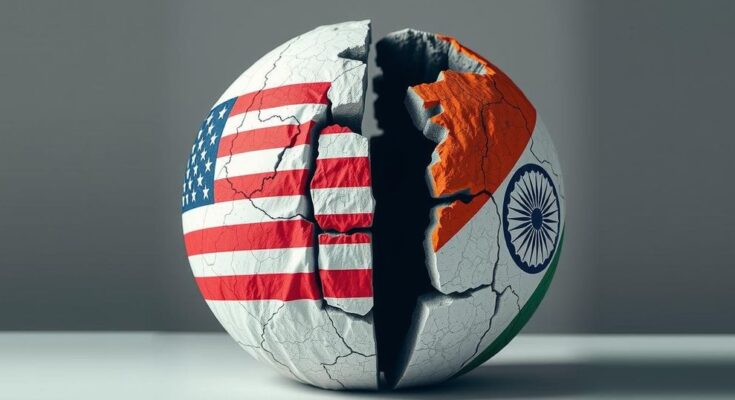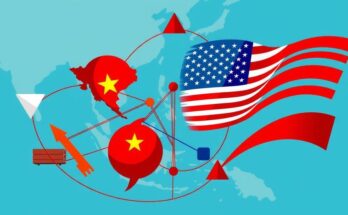President Trump addressed Congress, criticizing India’s high tariffs and announcing reciprocal tariffs starting April 2 to ensure fair trade. This marks a significant escalation in US trade tensions. The potential effects on India could disrupt its trade surplus and economic growth, particularly in key sectors. India faces a delicate balance in protecting its industries while continuing robust trade relations with the US.
In a significant address to Congress, President Donald Trump criticized high tariffs imposed by India and other countries, asserting the need for reciprocal tariffs on foreign imports. He emphasized that India, along with China and the European Union, has historically implemented excessive tariffs on American goods, particularly automobiles, which undermines US businesses. Trump’s remarks align with his administration’s commitment to enforcing fair trade practices and enhancing the “America First” agenda.
During his speech, Trump indicated that the implementation of reciprocal tariffs would commence on April 2. This strategic move aims to level the playing field by imposing equivalent tariffs on countries that charge high duties on US products. Trump expressed a clear directive, stating that the US would reciprocate tariffs and taxes imposed by these nations, thereby creating a fairer trade environment for American exporters.
The expected effect of Trump’s reciprocal tariffs raises potential challenges for India-US trade relations, which have strengthened over the last decade. India’s tariffs are noted to be significantly higher than those of the United States, especially in crucial industries such as agriculture and pharmaceuticals. An analysis by Goldman Sachs suggests that implementing reciprocal tariffs could affect India on various levels, complicating the trade dynamic further.
Goldman Sachs also highlighted three distinct dimensions of India’s exposure to resulting tariffs: country-level tariffs, product-level tariffs, and non-tariff barriers, each posing unique challenges and complexities. With certain tariffs on US automobiles potentially increasing average tariff differentials, essential sectors may experience new levies, putting strain on trade flows and economic growth.
The ongoing risk to India’s robust trade surplus with the United States, which has reached $35 billion, underscores the precarious nature of this issue. Furthermore, any escalation in US tariffs could minimally impact India’s GDP growth, threatening its influential export sectors such as electronics and textiles. A widespread implementation of global tariffs could amplify India’s exposure to US demands, presenting significant implications for its economic stability.
As the deadline for reciprocal tariffs approaches, the global trade landscape is poised for scrutiny. How these tariffs will materialize and their resultant impact on international markets remain uncertain. India faces the dual challenge of striving to protect its domestic industries while simultaneously navigating the complexities of trade relations with the United States, the world’s largest economy.
The recent address by President Trump highlights escalating trade tensions, particularly with India, following criticisms of high tariffs. The initiation of reciprocal tariffs on April 2 seeks to establish fair trade practices, potentially disrupting existing trade relations. The focus on key sectors and India’s vulnerability to GUS tariffs poses significant economic implications. As both nations navigate this complex landscape, maintaining a balanced trade relationship will be crucial to avoid broader conflict.
Original Source: indianexpress.com




